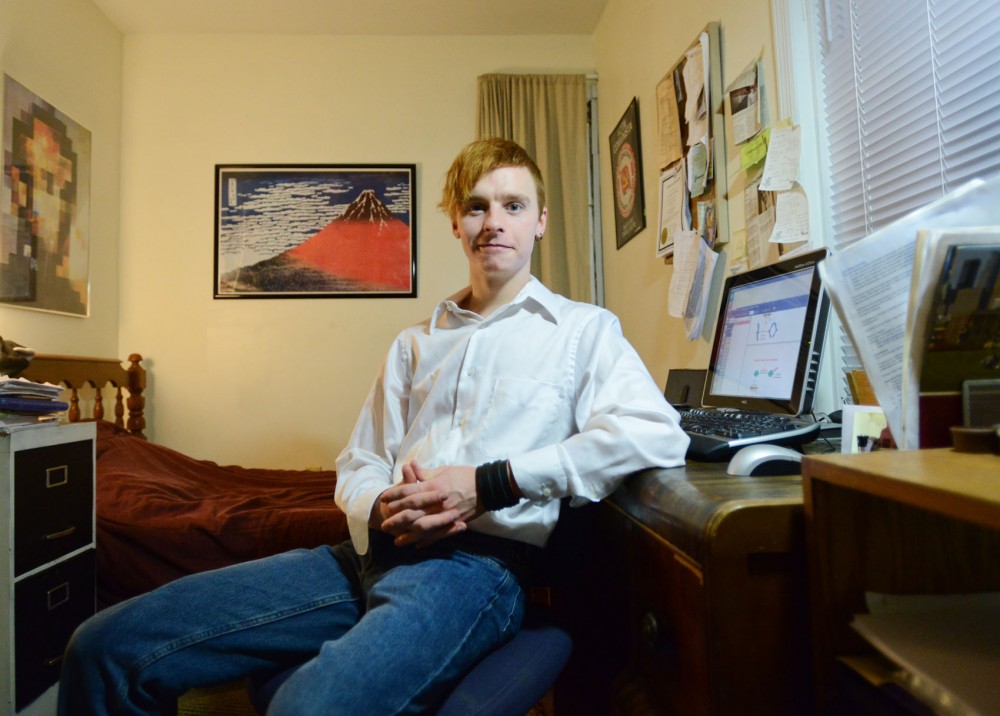After Election Day, most politicians get a chance to relax, but for a small portion, its back to midterms and late-night study sessions.
In local elections, a handful of college students appeared on ballots.
University of Minnesota neuroscience senior Kody Zalewski ran for the state House of Representatives this election.
Zalewski ran against Rep. Phyllis Kahn as a Republican to represent House District 60B, which includes the University.
With 21 percent of the vote, he lost to Kahn, who was re-elected for the 21st time as a member of the Democratic-Farmer-Labor Party.
Zalewski said he thought he could better represent students because he is one.
“I felt like I was better representing the constituents of 60B running as a college student,” said Zalewski. “It gave me some insight over my opponent.”
Zalewski said running for office can be difficult to balance while attending school and working part time.
“I think, maybe, especially with school and working, that put me at a disadvantage to Phyllis Kahn,” Zalewski said.
Zalewski isn’t the first to run against Kahn. Ole Hovde and Amanda Hutchings, both University students at the time, ran against Kahn in 2008 and 2004, respectively.
Both students — all of whom ran as Republicans — lost with just under a quarter of the vote.
In a special election last January, then mathematics and secondary education Augsburg senior Ben Schwanke ran for state Senate in District 59, which included the University area.
Schwanke ran against Kari Dziedzic. He lost, garnering 19 percent of the vote, and Dziedzic replaced Larry Pogemiller, the former senator who resigned to take a job as the director of the Minnesota Office of Higher Education.
Schwanke said he understood running as a college student would be an uphill battle.
“Just knowing that you’re a college student, you kind of have the odds against you already,” Schwanke said.
Schwanke had 30 to 40 volunteers helping on his campaign.
Zalewski had two friends working with him. He said he received his funding from family members and described his campaign as being “very, very grassroots.”
Schwanke’s volunteers went door-knocking, handed out flyers, posted on Facebook and texted their friends about his campaign.
“I definitely did feel like I was supported by the college students,” said Schwanke. “I felt overwhelming support.”
Schwanke said he thought he had good student support in the district, but the special election took place in early January while University students were on break.
“I don’t think it would have swung things for a win or a loss, but I think it affected the total outcome.”
Over in St. Paul, Macalester political science and German junior Andrew Ojeda also ran in last week’s election.
Ojeda lost to DFLer Erin Murphy in the race to represent District 64A. Ojeda captured almost 21 percent of the votes.
Like Zalewski and Schwanke, Ojeda ran as a Republican because he believes that the Republican Party most aligns with his views and how he was raised.
“It really stems back to my parents,” he said. “My mom and dad both came from Mexico, and they really knew the value of hard work.”
After working in the state Capitol under Sen. Gretchen Hoffman, R-Vergas, Ojeda said he saw a lot of things he liked and a lot of things he didn’t like.
He decided to run last winter and received the Republican endorsement.
Ojeda said because he’s young, he was able to put a lot of energy into the campaign.
“I didn’t burn out at all really.”
He said he raked leaves and helped people out when he went door-knocking around his district.
Schwanke had similar sentiments. He said his schedule was often getting to sleep at 3 a.m. and waking up at 7 a.m.
Ojeda felt students at Macalester especially supported his campaign.
“A lot of students just really appreciated the fact that I was able to do it, especially on a full course load,” Ojeda said. “I think a lot of students did know who I was at Macalester.”
Many students who run for political office cite their youth and role as a student as reasons they should represent other students.
Some fellow students agreed but had reservations.
“I think that they would definitely bring a new perspective to the political system, but their lack of experience might be of some concern to voters,” English junior Timothy Krueger said.
All three candidates said they enjoyed running and gained a lot from the experience.
“It was one of the funnest times in my life,” Schwanke said. “I miss just having that conversation with people every day.”








